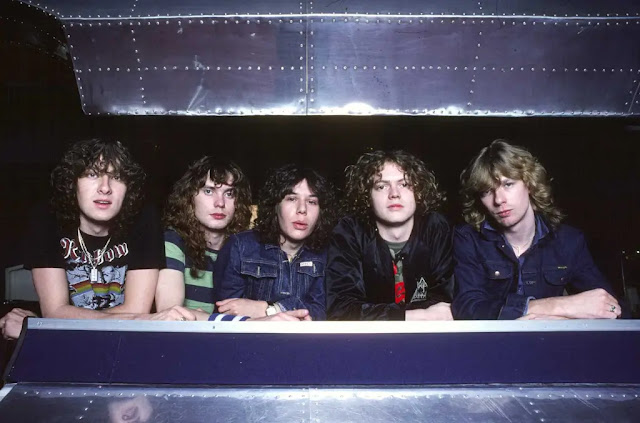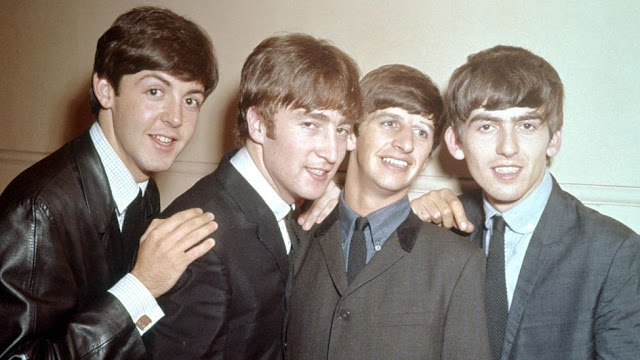The history of The Def Leppard E.P. (1979)
In the annals of rock history, certain albums stand as pivotal moments that mark the emergence of iconic bands. One such landmark release is "The Def Leppard E.P.," a record that offers a glimpse into the formative years of the legendary British rock band Def Leppard. Released in 1979, this extended play (EP) served as a precursor to the band's meteoric rise to fame, showcasing their raw talent, energy, and the seeds of their distinctive sound. Def Leppard's journey began in Sheffield, England, in the late 1970s. Formed by a group of teenagers with a shared passion for music, the band's lineup included Joe Elliott on vocals, Pete Willis and Steve Clark on guitars, Rick Savage on bass, and Tony Kenning on drums (later replaced by Rick Allen). Eager to break into the music scene, the young musicians played local gigs and diligently honed their craft. By 1978, Def Leppard had gained some local recognition and was actively seeking a recording deal. They began working with local producer Nick Tauber, whose guidance helped them refine their sound. The band's blend of hard rock and melodic hooks was beginning to take shape. It was during this period that they recorded their first independent single, "Getcha Rocks Off," which garnered attention and piqued the interest of major record labels. In January 1979, Def Leppard entered Fairview Studios in Hull to record what would become "The Def Leppard E.P." Consisting of three tracks – "Ride into the Sun," "Getcha Rocks Off," and "The Overture" – the EP captured the youthful exuberance and raw energy that defined the band's early performances. The EP's production was relatively modest, reflecting the limited resources available to an emerging band. However, this inherent simplicity worked in their favor, as it preserved the authentic essence of their live sound. "The Def Leppard E.P." was released independently through the band's own label, Bludgeon Riffola Records, in January 1979, and it quickly gained attention within the rock underground. As "The Def Leppard E.P." made its way into the hands of fans and music industry insiders, its impact was undeniable. The EP's tracks showcased Def Leppard's ability to seamlessly weave together hard-hitting guitar riffs with catchy melodies, a combination that would later become a hallmark of their signature style. "Ride into the Sun" introduced listeners to Joe Elliott's powerful vocals, which would become a defining element of the band's sound. "Getcha Rocks Off" proved to be a standout track, capturing the band's electrifying live energy and capturing the essence of their live performances. The song's infectious chorus and memorable guitar hooks left an indelible mark, and it became a fan favorite that would remain a staple in their live shows for years to come. "The Overture," an instrumental piece, showcased the band's musical versatility and hinted at their potential to experiment with different sonic textures. This track served as a testament to their creative ambition, even in the early stages of their career. The success of "The Def Leppard E.P." caught the attention of major record labels, and the band soon signed a deal with Mercury Records. This pivotal moment marked the beginning of Def Leppard's journey from local heroes to international rock icons. Their subsequent albums, such as "High 'n' Dry" (1981), "Pyromania" (1983), and the groundbreaking "Hysteria" (1987), propelled them to superstardom and solidified their place in rock history. Looking back, "The Def Leppard E.P." stands as a crucial milestone in Def Leppard's trajectory. It serves as a testament to the band's determination, talent, and unrelenting passion for music. The EP's release marked the start of a remarkable journey that would see Def Leppard become one of the best-selling music artists of all time, with their music continuing to inspire and resonate with generations of rock enthusiasts. In conclusion, "The Def Leppard E.P." remains a cherished relic in the annals of rock history, a snapshot of a band on the cusp of greatness, and a reminder of the raw, unbridled energy that fuels the spirit of rock 'n' roll.



Komentarze
Prześlij komentarz